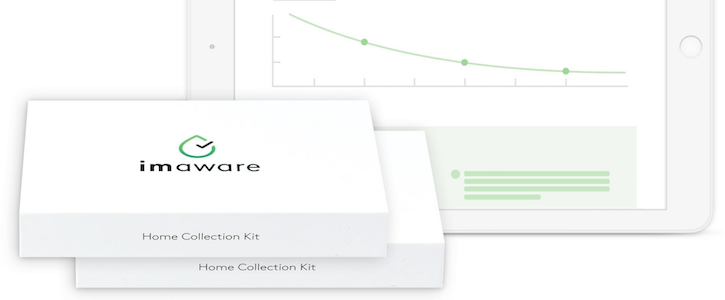- Politics
- Diversity, equity and inclusion
- Financial Decision Making
- Telehealth
- Patient Experience
- Leadership
- Point of Care Tools
- Product Solutions
- Management
- Technology
- Healthcare Transformation
- Data + Technology
- Safer Hospitals
- Business
- Providers in Practice
- Mergers and Acquisitions
- AI & Data Analytics
- Cybersecurity
- Interoperability & EHRs
- Medical Devices
- Pop Health Tech
- Precision Medicine
- Virtual Care
- Health equity
Microdrop Says It Has Succeeded Where Theranos Famously Failed
At-home blood testing could soon become a reality.

Images have been altered. Courtesy of Biswarup Ganguly (thumbnail) and Microdrop.
In the new HBO documentary The Inventor, filmmaker Alex Gibney details the rise and fall of Theranos, a company that failed to deliver on its core technology, at-home blood testing. The film is a cautionary tale of how investors often gravitate toward engaging personalities, such as Theranos founder Elizabeth Holmes, instead of carefully scrutinizing the underlying businesses seeking their money. However, in the case of Theranos, it appears the underlying idea — rapid, low-cost at-home blood testing — was indeed valid. And even though Theranos couldn’t deliver, other companies are rising up to say that they can.
Earlier this year, the healthcare company Microdrop published the findings (PDF) of a new study that suggests Microdrop’s at-home blood testing platform, imaware, can be used to diagnose celiac disease with high accuracy. The technology increased the likelihood of confirming the disease to more than 90 percent in most cases, according to the results, published in the journal Clinical Chemistry and Laboratory Medicine.
Microdrop says the study makes it the first company to release public clinical data backing up this kind of technology. It’s the sort of credential that Microdrop and its competitors will likely need to stack up if they are to break through the haze left by Theranos.
So why did Microdrop zero in on celiac disease? Co-founder Jani Tuomi cited a significant opportunity to improve patients’ lives through faster diagnoses.
“While the first test that we completed was in fact for prostate cancer, we decided to start with autoimmune conditions as they are incredibly underdiagnosed, and nobody is focused on providing an effective screening method that is generally accessible and affordable,” he told Inside Digital Health™.
Tuomi said the imaware celiac test, which costs $99, will allow patients to get diagnosed more quickly and thereby avoid months or years of pain and frustration waiting for the correct diagnosis. Patients who purchase the test collect blood samples at home, mail the kits back to Microdrop and receive the results through a secure online portal within five days.
Like Theranos, Microdrop sees a wide window for at-home testing. Tuomi envisions a world in which patients get genetic testing early in life to give themselves a baseline of their health predispositions. That data would then be supplemented with semi-annual or annual blood tests to help patients quickly ascertain whether preconditions are developing into full-blown diseases.
“Each day, we’re learning more about the biomarkers in our own blood, what information they carry, and if they are reliable enough to be used for at-home testing (or even lab-based testing ordered by your doctor),” he said.
As that information comes out, Microdrop plans to expand its offerings and capabilities.
“For a proactive healthcare to truly take hold, we have to enable the patient to initiate the testing, somewhat like saying we have to enable the consumerization of healthcare so that patients can engage their doctors sooner and with better information,” Tuomi said.
Though Microdrop believes it can succeed where Theranos failed, he noted that the high-profile nature of Theranos’ apparent deception has informed Microdrop’s strategy as it rolls out imaware.
“Consumers need transparency in the solutions they’re using to support their health goals,” he said. “This includes the at-home blood testing space. Imaware is embracing this and setting the standard for the industry moving forward by having our data shared and vetted with peer-review medical journals.”
Tuomi said he hopes competitors do the same in order to boost the medical industry’s confidence in this type of technology.
“At-home blood testing can revolutionize the healthcare journey by empowering patients with early detection, and it is ready to become a core step in our healthcare systems today,” he said.
Get the best insights in digital health directly to your inbox.
Related
Handling the Headaches of At-Home Genetic Testing
Podcast: The Holocaust Survivor Who Forced Us to Face Burnout
Replacing Old-School Algorithms with New-School AI in Medicine
